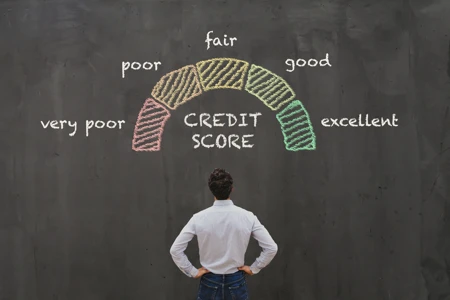 Written by: Danny Belton - Head of Lending
Written by: Danny Belton - Head of Lending
With different credit tiers and scores in a constant shift, how do you know where to look? This article outlines the UK's credit tiers across the three main credit bureaus, how they work, and their potential impact on your financial wellbeing, focusing specifically on how your credit score affects getting a mortgage.
The tiers of credit
In the UK, credit reference agencies like Experian, Equifax, and TransUnion assign you a credit score based on your borrowing history and financial behaviour. These scores range from 0 to 999, depending on who you’re looking at, with higher scores indicating a stronger credit history. Scores are then categorised into tiers, which lenders use to assess your creditworthiness.
Here are some examples of fair, good or excellent scores across the three major credit bureaus in the UK, as they all differ slightly:
A fair, good, or excellent Experian credit score
Experian is the biggest credit agency in the UK and their scores range from 0 to 999. A credit score between 721 to 880 is considered fair, a score of 881 to 960 is regarded as good, and a score of 961 to 999 is considered to be excellent.
A fair, good, or excellent TransUnion credit score
TransUnion is the UK’s second largest credit agency, and has scores ranging from 0-710. A credit score of 566-603 is considered fair. A credit score of 604-627 is good. A score of 628-710 is considered excellent.
A fair, good, or excellent Equifax Credit Score
Equifax scores range from 0-700. 380-419 is considered a fair score. A score of 420-465 is considered good. A score of 466-700 is considered excellent.
Your score and your mortgage
Owning a home is a major life goal for many in the UK, and your credit score plays a pivotal role in securing a mortgage. Lenders use your score to assess your risk as a borrower, determining the eligibility and interest rates offered.
Excellent/good scores
Borrowers with these scores typically enjoy better mortgage deals with more competitive interest rates and flexible terms. They would likely have access to a wider range of lenders and products.
Fair score
Applicants with a fair score might still qualify for a mortgage, but they might face higher interest rates and stricter eligibility criteria.
Poor/very poor scores
Securing a mortgage with these scores is challenging, though not impossible. Lenders might impose stricter terms, higher interest rates, or even reject the application altogether. A mortgage adviser may be able to help you secure a deal with a less-than-ideal credit score, but this depends entirely on your unique circumstances.
Speak to an adviser today to see if you could qualify for a mortgage.

